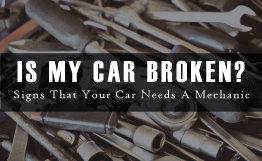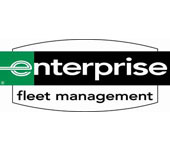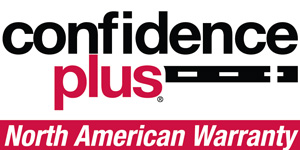Business Hours
- Monday - Friday
- BASHFORD AVE
7:30 AM - 4:30 PM
Phone: (502) 203-0454 - PRESTON HWY
7:00 AM - 4:00 PM
Phone: (502) 230-4279
AMERICAN BRAKE CENTERS INC.
(502) 203-0454 for Bashford Ave or (502) 230-4279 for the Preston Hwy location | 3435 Bashford Ave Ct Louisville, KY 40218
AUTONET TV
Archive for September 2025Oil's Well That Ends Well (Oil Change Grades and Weight)Posted September 28, 2025 3:46 AMChanging your oil regularly is one of the most important things you can do to keep your vehicle running well. And knowing the right type of oil to use is also very important. Engine oil is classified by weight, but it doesn't refer to how much the oil would weigh if you put it on a scale. It refers to viscosity, or how easily the oil flows through the engine. Most engines operate normally at around 210°F/99°C. The viscosity, or weight, is assigned a number by how well it flows at that temperature. The lower the number, the more freely it flows. Most vehicle engines use what's called a multigrade oil which behaves differently in different temperatures. Multigrade oils have a "W" in their viscosity number that you may have seen on a bottle of oil, something like 5W30. The W stands for winter and shows how freely it flows in colder temperatures. That means a 5W30 oil will behave like a 5 weight oil in lower temperatures (less viscous or thinner) and a 30 weight oil in warmer temperatures (more viscous or thicker). That's important on a cold day because the oil needs to behave like a thinner oil when you start your engine since it need to lubricate engine components immediately to protect the metal components. Then as the engine warms up, it behaves like a thicker oil to prevent friction among those parts. Pretty neat trick, right? The type of oil you use can differ depending on what type of climate you operate your vehicle in and how your vehicle is used (carrying big loads, towing, etc.). Your owner's manual contains several different recommendations based on these factors. Your service advisor can recommend the right oil for your needs. Like Shakespeare said, "Oil's well that ends well." American Brake Centers Inc. A Bright Spark (Ignition Coil Replacement)Posted September 21, 2025 3:48 AMEver wonder how your vehicle’s engine is able to take the 12-volts from its battery and ramp that up to as high as the tens of thousands of volts it takes to fire its spark plugs? The secret is something called an ignition coil. Most newer vehicles have an ignition coil at each cylinder, but older ones have a coil that serves all of the spark plugs. There are telltale signs that you have an ignition coil problem. As you might expect, one symptom is it’s hard to start your engine or it won’t start at all. If your engine is misfiring or not running smoothly or you see the Check Engine light come on, those all could point to an ignition coil failure. Several things can contribute to ignition coil trouble in addition to normal wear and tear. Moisture and dirt may have gotten inside the coil, plus the heat and vibration of your engine over time can contribute to them going bad. Bad spark plugs or plug wires can also be a cause. While ignition coils can last 100,000 miles/160,000 km, depending on how you drive and in what conditions. If you start noticing some of the signs and symptoms just described, it’s a good idea to schedule a visit to see us so a technician can diagnose what’s wrong. Driving too long with an engine misfiring can damage your catalytic converter, and that can be expensive to replace. A technician will thoroughly check your ignition system and determine where the failure is. If it’s only one coil that’s bad, it may be the only thing that will need replacing. If your vehicle has a distributor, it may also need to be replaced. Properly-working ignition coils will help your vehicle operate at its best and help prevent future engine damage. American Brake Centers Inc. Don't Be Shocked (Shock Absorbers)Posted September 14, 2025 3:45 AMIf you've ever ridden down a rough road on your bicycle, you know how hard a ride it can be. Yet drive down the same road in your car, truck or SUV and it miraculously will smooth out the ride. That's because it is equipped with shock absorbers. They are built to dampen impacts from road irregularities. But after taking hundreds of hits from potholes, railroad tracks and curbs, your shock absorbers can wear out. Besides the rough ride that can cause, there are other ways your vehicle's performance can be affected. When it comes to braking for example, you may take a longer distance to stop. That's because shocks help keep your tires in contact with the surface of the road. If the shocks aren't working properly, the tires won't make contact like they should. So when you slam on the brakes, your vehicle will take longer to stop. Consider what worn out shocks are doing to your tires. Since the bumps aren't being dampened as much, your tires can bounce up and down more. That can produce a problem of uneven wear called cupping. And when you start out from a stop, your vehicle may not have the traction it should since the shocks aren't keeping them down on the road as you accelerate. If you have front wheel drive, you may lose some steering control on acceleration. Obviously, many of these things involve safety concerns. Pay attention to any deterioration in your vehicle's ride quality. If your vehicle is starting to bounce up and down and its ride feels bumpier than before, head on over to your vehicle service facility and get your suspension checked out. Do the same if steering response isn't as good as it used to be. Notice that your vehicle nose dives when you brake? Are your tires wearing in an unusual manner? All are signs that your shocks may be on their last legs. If the last time you replaced your shocks was 50,000 miles/80,000 kilometers ago, a technician should evaluate them. Don't be "shocked" if it's time for new ones.
The Truth about Tire Pressure (Tire Inflation)Posted September 7, 2025 3:56 AMMost light vehicles (under 10,000 pounds/4,500 kg) in North America sold from 2008 model year on have a feature that many people are confused about. It's the tire pressure monitoring system (TPMS). You may have some experience with it yourself if you own a newer vehicle. Vehicles with TPMS have sensors in each tire that are supposed to warn the driver when tire pressure gets dangerously low. That's important because tires that are significantly under-inflated can cause very serious accidents. Unfortunately, many drivers think the TPMS does all the work keeping track of tire pressure. To them, as long as the warning light or gauge isn’t giving a warning, the tires must have the proper amount of air pressure in them. That's not the case. Tire pressure monitoring systems aren't all created equal. Some give you a digital readout of the pressures in each individual tire. But many simply have a warning light that looks like the cross section of a tire with an exclamation point in the middle. If you don't know what it is, it's because it's not instantly recognizable as a tire. In fact, one company that makes TPMS, Schrader Performance Sensors, surveyed drivers. Their study showed that more than 40 percent of drivers didn't know that that warning light was. One out of 5 of the drivers who did know what the light was only looked at their tires after the light came on to see if they could see any that needed air; they never checked them with a tire gauge or had someone else do it. Ten percent of them didn't do anything when the light came on. In most vehicles with TPMS, the warning comes on only when the tires are more than 25% underinflated. The American Automobile Association says that's under the pressure you need for safe vehicle operation. The bottom line is once a month you should make sure your tires are inflated to the manufacturer's recommendations. That means each tire should be measured with an accurate, external tire gauge. To be confident you are getting a correct reading, take your vehicle to a reputable service facility where their equipment is calibrated and they know what they're doing. Severely underinflated tires can contribute to an accident that kills or severely injures people. The idea behind TPMS is well intended, but the system was never meant to replace regular inflation measurements and maintenance. Periodically have your tires checked for proper inflation. American Brake Centers Inc. | ||
SearchArchiveJune 2019 (18)July 2019 (4) August 2019 (4) September 2019 (5) October 2019 (4) November 2019 (4) December 2019 (5) January 2020 (5) February 2020 (4) March 2020 (5) April 2020 (4) May 2020 (5) June 2020 (4) July 2020 (4) August 2020 (5) September 2020 (4) October 2020 (4) November 2020 (5) December 2020 (4) January 2021 (6) February 2021 (4) March 2021 (4) April 2021 (4) May 2021 (5) June 2021 (4) July 2021 (4) August 2021 (5) September 2021 (4) October 2021 (5) November 2021 (4) December 2021 (4) January 2022 (6) February 2022 (4) March 2022 (4) April 2022 (4) May 2022 (5) June 2022 (4) July 2022 (5) August 2022 (4) September 2022 (4) October 2022 (5) November 2022 (4) December 2022 (4) January 2023 (5) February 2023 (4) March 2023 (4) April 2023 (5) May 2023 (4) June 2023 (4) July 2023 (5) August 2023 (4) September 2023 (4) October 2023 (5) November 2023 (4) December 2023 (5) January 2024 (5) February 2024 (4) March 2024 (5) April 2024 (4) May 2024 (4) June 2024 (5) July 2024 (4) August 2024 (4) September 2024 (5) October 2024 (4) November 2024 (4) December 2024 (5) January 2025 (4) February 2025 (4) March 2025 (5) April 2025 (4) May 2025 (4) June 2025 (5) July 2025 (4) August 2025 (5) September 2025 (4) October 2025 (4) November 2025 (5) December 2025 (4) January 2026 (3) | CategoriesWhat Customers Should Know (49)Fuel Economy (5)Tires and Wheels (2)Timing Belt (5)Fluids (3)Maintenance (8)Alignment (6)Check Engine Light (4)Steering (5)Exhaust (7)Shocks & Struts (2)Air Conditioning (4)Brakes (11)Older Vehicles (1)Cooling System (7)Battery (4)Water Pump (1)Oil Change (7)Transmission (2)Tires (3)Customer Detective Work (1)Fuel Saving Tip: Slow Down (1)Fuel System (2)Auto Safety (3)Keys to a long lasting vehicle (2)Windshield Wipers (2)Serpentine Belt (1)Alternator (3)Automotive News (2)TPMS (2)Headlamps (3)Service Standards (2)Cabin Air Filter (2)Fuel Pump (1)Safety (2)Winter Prep (1)Drive Train (2)Inspection (3)Engine Air Filter (3)Dashboard (1)Spark Plugs (1)Shocks and Struts (1)Battery Replacement (1)Tire Rotation and Balancing (1)Fuel Filter (1)Trip Inspection (1)Brake Service (1) | |








